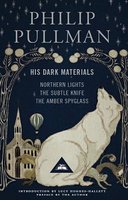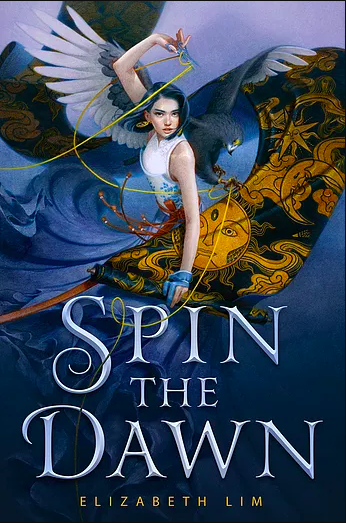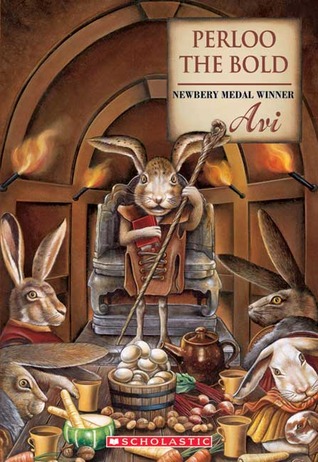Lyra’s world is very interesting in its similarities and differences to our own. One of the master-strokes of the concept is that everyone in her world has a “daemon,” i.e. a companion animal that talks to them and physically represents their soul, so that they are joined together for life. And until puberty, when the daemon’s animal form is fixed, it can actually change into different shapes according to its mood. So in Lyra’s world, no one is ever really alone, and everyone knows himself or herself in a very interesting way. And a sinister plot to sever unwanted children from their daemons propels Lyra into the center of a great spiritual warfare, where she is joined by a boy named Will who has fled from his world with a murder on his conscience. And with Lyra’s sinister mother maneuvering from one side, and her enigmatic father from the other, and a lapsed nun playing the role of the Serpent in Eden, and mind-destroying monsters, angels, armored bears, and other astonishing beings abroad, absolutely anything can happen up to and including a change of administration in heaven.
The popular demand for a review of these books indicates that they are among the most popular books among people who also enjoy the Harry Potter books. And from my own experience I may add that Pullman is a very gifted and daring writer, and there is no getting around the fact that His Dark Materials is breathtakingly original work.
However, I can give only a very guarded recommendation for this series. I am sure many of you will disagree with my opinion, but I am sure that you are wise enough to bear in mind that I can only give you my opinion here, and that’s what you came to the Book Trolley to read. So please, don’t all of you jump down my throat for saying this. For in spite of Pullman’s great talent and strong vision in these series, I have two quibbles.
First, I agree with another reviewer before me who noted that the quality of the series seems to diminish as it goes along. The Golden Compass is the strongest part of the trilogy, and each successive book is simply less entertaining, in my opinion. Your opinion may differ; that is your right. I certainly don’t want to tell you what to think, or suggest that you should just take my word for it and not make up your own mind. But I believe that many who read this whole trilogy will agree with me in the end.
Second, I want to caution young Christians and their parents about these books. You may want to read them together and discuss them together, because they raise thought-provoking issues about God, sin, the history and character of the Church, angels, good and evil, and Christianity in general. My personal reaction to these books, especially as the sequence played out, is that Pullman is a very angry man who hates the Church, and that The Amber Spyglass in particular is a thinly disguised attack on Christian morals, doctrine, and organized religion.
I do not dispute that evil things have been done in history, in the name of God and the established church, nor am I saying that because of the way Pullman propounds his views, no one should read these books. I am the last person to say such things, after putting so much on the line as a conservative Christian pastor to defend good books like Harry Potter from censorship by fundamentalist fanatics. But I ask that all who read these books, do so with their critical-thinking caps on, and don’t simply accept the point of view that Pullman puts across. Frankly, I believe his views are wrong.
And I want to warn you that many sincere, concerned Christians may be very uncomfortable reading these books. You pick them up expecting a cosmic fantasy-adventure amid interesting parallel worlds, with modern and medieval elements mixed together… and you gradually realize that you have never had your faith so directly and belligerently confronted; you have never seen your morality so thoroughly turned upside down; and you have never seen everything you hold to be sacred and true, subjected to such hostile treatment in a work of fantasy-fiction. Some may call it profound or daring. Some may simply shake their heads at the preachy bits. For me, it spoiled the magic and ruined the fun.
The first book in this trilogy, originally titled Northern Lights, won the 1995 Carnegie Medal.
Recommended Age: 14+



